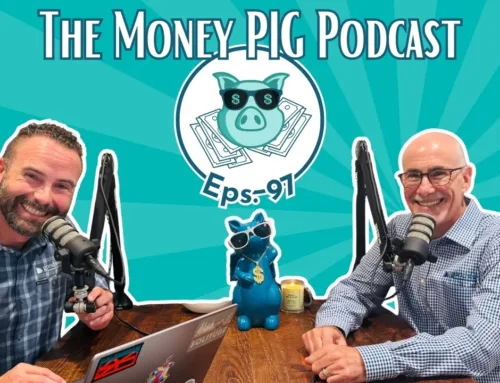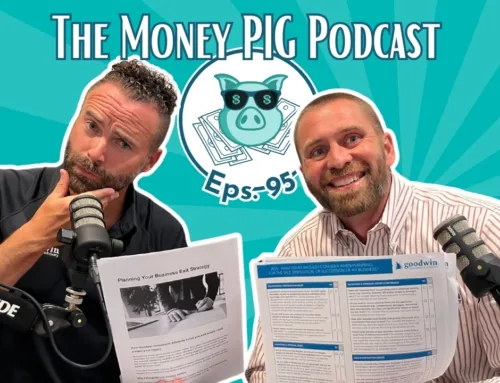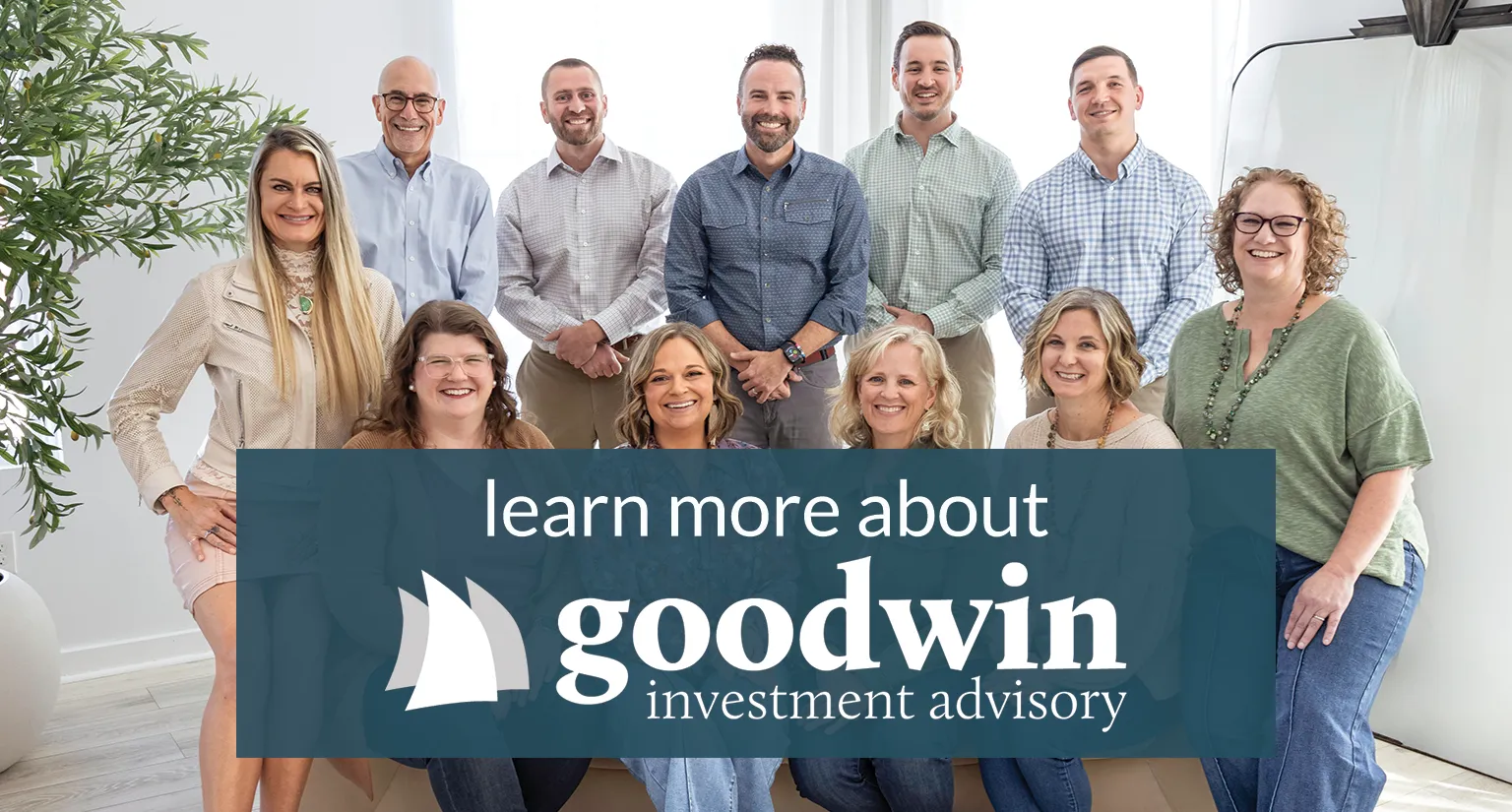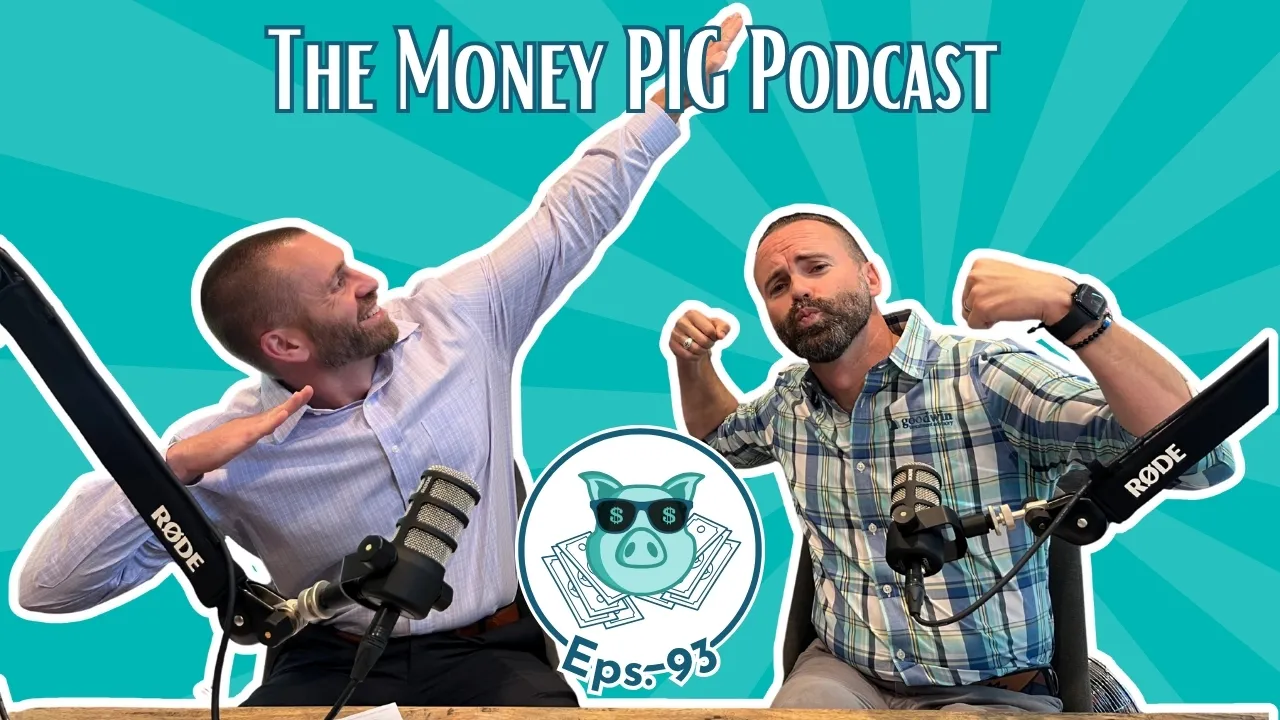
Link to Youtube –
https://youtu.be/vRs-lViWI8E
Link to buzz sprout –
https://www.buzzsprout.com/2136084/episodes/17444005
You probably know a financial advisor can help with investments… but did you know they might also help you save tens of thousands on taxes, qualify for health insurance subsidies, or optimize your Social Security strategy?
In this episode of The Money PIG Podcast, Tim Goodwin and Justin Pitcock dive into the lesser-known ways a financial advisor can serve you—beyond just managing your portfolio.
From hunting hogs with hounds (literally) to uncovering $10,000 in tax savings for newlyweds and helping a multimillionaire get an Obamacare subsidy, this episode is full of surprising stories, smart strategies, and a healthy dose of humor. You’ll also learn:
- How financial advisors help clients navigate major life transitions
- Why tax strategy isn’t just for CPAs
- How to think about Social Security timing
- What to know about health insurance before Medicare
- And why GIA advisors act as life advisors, not just money managers
Plus, Justin is writing a tax strategy handbook. You’ll get a sneak peek into what’s coming.
Read the blog that inspired this episode:
https://www.goodwininvestment.com/things-you-didnt-know-a-financial-advisor-could-do-for-you/
Like, subscribe, and leave us a review if this resonated with you!
Enjoy the episode?
Subscribe, share it, and leave us a review on Apple or Spotify!
For personalized financial guidance, schedule an intro call with our team at Goodwin Investment Advisory in Canton, GA. Our CFP® professionals can provide advice and help you navigate how to invest your wealth and plan for your retirement. We’d love to help you live out your legacy! To learn more about the benefits and services we offer click here.
Goodwin Investment Advisory is a Registered Investment Advisory firm regulated by the Securities and Exchange Commission in accordance and compliance with securities laws and regulations. Goodwin Investment Advisory does not render or offer to render personalized investment or tax advice through the Money PIG podcast. The information provided is for informational purposes only and does not constitute financial, tax, investment or legal advice.
Transcript:
Welcome back to the Money Pig podcast. I am super excited. I always say super excited because I really am, especially when I have an incredible guest as usual, Justin Pickock, Elmer Fudd. Excited to have you back here, Mr. Fudd. Thanks, man. It’s been too long. long. Too long. Actually remind the audience why we call you Elmer Fudd in case they haven’t heard this before. So it’s because I’m special. For sure. I’m just kidding. It’s because I love to hunt and so quite
I guess this other people would say successful. anyways, I love to hunt fish and actually, um, been doing some, um, trying some new things and, uh, recently just got to go with some guys, um, to hunt bears and hogs with dogs. many, how many dogs are we talking about here? Like two, three dogs. had like 30 dogs. It was three truckloads of hounds. And, um, it was a really cool experience, but we, we rode some, uh,
drove some forestry roads and when those dogs smell where a bear crossed the road, they go absolutely nuts. In fact, these guys call, they call it a blow up because the dogs literally just go wild. They let the dogs loose in the dog’s trail, the bear pig, whatever it is. And it’s more of like a sport, a social sport. Like they’re not actually going to shoot the bear or the hog necessarily, but, it’s
these, you know, people just get together, watch their dogs like catching a fish and throwing it back. Yeah, found the bear. They treat the bears like all right, that’s tree success. Yeah, wild. I frustrated when like my two dogs are barking for an excessive amount of time, but like 3030 dogs barking. I don’t know. Cool.
Cool. But I you can hear them from pretty far away. yeah. Like I think you were telling me the story. They’ve got like a GPS collars on them. So you’re tracking them, but that’s, that’s right. So they also hear all these guys that every dog’s got a GPS collar and they’re generally all together unless the, they run into multiple animals. And then maybe some dogs are chasing one animal. The other group of dogs is chasing a different one. But so these, these guys are just like watching the dogs on their
Tim Goodwin (04:26.062)
on their GPS. So they’ve got like a Garmin and they’ve got all the little dots and they spread out and they converge all of a sudden. Pretty much. And when they treat the bear or Bay the hog, whatever it is, it’s the GPS like signals like, the dog’s not moving anymore. Like it’s time to get in there. Wow. And so they’ll, they’ll go in there and pull, call the dogs off. If it’s, you they treat a bear cause they’re it’s especially this time of year. It’s not bear season.
I hope you’re going like early in the day or late at night because it’s starting hot. start early in the morning. First light. Gosh. Up in the Kahuta, man. That’s beautiful. Beautiful country up here in Georgia. But as Elmer Fudd, you’re not really going after those rascally rabbits. What did he say? Wascoly rabbits. Wascoly rabbits. Yeah, that’s right. about the wascoly bears and pigs and the fish. That’s awesome. you know that I’m more of a runner than a hunter. That’s how I get my exercise. But I decided lately to stop
giving money to people for marathons because they just take my money and run.
I got a little smile. Angela’s starting to laugh. Okay. She had to let it cook. Let it cook over there. So, all right. Maybe we should get into the topic of the podcast. But honestly, that was super interesting. So we’re talking about things that you didn’t know a financial advisor could do for you. And we’ve started kind of having this concept because I think like, let’s start with the why, right? I love to start with the why. Why are we sharing this on a podcast episode?
And I think there’s some very typical things that you might think about hiring a financial advisor for planning retirement, helping you with your investments, right? Of course. What’s really cool though is that we even consider ourselves life advisors, right? Like there’s so much like money’s tied to your heart. It’s tied to so many things or so many financial decisions to make. And if you hire a certified financial planner, like what we are, right? We are very well educated and therefore tested and interested in
Tim Goodwin (06:25.322)
more than all things personal finance. Okay. It’s very comprehensive. Absolutely. So comprehensive meaning like not just investments and retirement planning, but estate planning, tax planning, insurance planning, helping you understand your benefits packages. That’s right. Right. planning. Yep. It covers all aspects. Right. Right. So I think that there are times where we’re meeting with clients and they’re like, wow, I didn’t know you could do that for me. And ultimately like
why I started this company, why we find so much purpose and enjoying it. Obviously, ties to the pig leading people to financial peace, independence and generosity. Quick nod to the notorious PIG. Is he coming in really good in the shot right there? Okay. But it’s also that we want to remove financial anxiety. need to some hounds on that sucker. You need to get some hounds on that pig? Absolutely. So but we we realize that there’s financial anxiety like financial anxiety is a real thing. Everybody’s dealing with that.
with making money, with making financial decisions. And so I think it’s just really cool that we can really intelligently with experience and education talk to our clients about any financially related decision that they’re going through, even if we’re not paid on it. We’re obviously paid on the planning, on the insurance. We don’t get paid on insurance to be clear, on the investments that we manage. But that compensation doesn’t limit our advice. We really like to kind of help clients
make better financial decisions, feeling more equipped about it. So let’s dive right into that. Let’s get to this first question, which I know is one of your favorites. And if you’re a regular listener on the money peg to an Elmer Fudd conversation, it can often go to a tax situation. So he’s he’s our resident expert on taxes, but how share some recent stories maybe around how you have helped your clients here with tax strategies, saving taxes, that kind of thing. I’ve got I’ve got a ton of stories. But so the most recent
there was a couple, they recently got married. I’ve well recent as in a couple of years ago and they always, you know, filed their own tax returns. So they got married and they were like, well, I’ve been filing a single tax return. So they just started filing married filing single. And separately. Well, yeah, married, separate, separate, separate. Gotcha. Yep. Both starts with us. gets confusing. So anyways, it came up in conversation because we were
Tim Goodwin (08:49.966)
taking a look at their tax return. It started because the husband said, Hey Justin, can you help me figure out why I owed so much more in tax this year? In the prior year. So you guys actually offered this comparison, right? Of the year before versus last year. Yes. did like, that’s super cool. We got his tax return, the 2023 and the 2024 compared the two and we’re like, okay, well here’s the things. And I noticed it’s like, gosh, you’re filing married filing separately.
Like probably if you file a joint tax return, there’ll be some savings, but let’s check this out. We don’t know that for sure. So we got the wife’s tax return, put the two together to as if you were filing jointly and realized that it would save about $10,000. So if they had done that last year, like in 24. And so you can amend your tax return for this back three years. Wow.
And so we’re going to look at the 23 as well. could buy like 30 hounds without much money and go chase bears. A well-trained hound is like eight to $10,000. Oh my goodness. They’re just kidding. Wow. Now they don’t, these guys don’t buy them. They train them themselves and breed them themselves. That’s what expensive. Um, anyways, so 10 grand last year, 10, 10 grand last year. So essentially that much this year. And so what are they going to do? Well,
I mean, I they amend their tax return. We’re going to look at the 23 and they’ll probably amend the 23. At this point, they can literally go back, redo the 24 return. That’s right. Amend it, file married joint, right? Married filing jointly. right. And just get a 10 grand check from the government. And guys, if y’all are listening, we do accept tips. No. Just kidding. like, make sure that disclosure is really clear at the end of this episode. Yeah.
That’s funny. Wow. So that’s, that’s enormous. Probably not something that folks are thinking financial advisors will do for them. Great story. I don’t know if we should have ended with that story. I don’t know how you’re going to get better, but go ahead and share some other ones. Another one, a guy recently came in and he had a problem like the, he’s seeking financial advice. One, he wants somebody to help him manage his investments. So that’s kind of like the core of what we, what we do and how we get paid.
Tim Goodwin (11:13.934)
But his problem was he messed up his 2024 tax return. He didn’t include receiving income from his business. Now, seems like a major error. Depending on the income. I think he didn’t want to get the late penalty, so he filed it like it was and he needed time to figure out the strategy on how to classify the income that he received from his business.
So he pulled out a big chunk. he’s got a C corp. So there’s different business structures. and it matters when it comes to taxes, but he needed money to buy a new house. And so it was like a $600,000, transfer from the business to him personally. And when we got to looking at it, we realized that, gosh, like you could classify it as a dividend. Well, then net investment income tax would be a factor.
He’s over the age of 65, meaning that social security or Medicare’s already, you know, started for him. So there’s the Irma surcharges. So that’s the part B and part D premiums for Medicare. So that’s a factor. And, um, and then there’s the long-term capital gains rate for this qualified dividend. So it’s 15 or 20%. And his other choice will see, could classify it as a salary, but then he’s got payroll taxes. Um,
And so we were thinking through, okay, what combination of these things makes sense? And if, as a C corp, there’s the corporation is taxed at its own rate. it’s there’s double taxation here, depending on how you structure it. Right. If you pay it as a salary, it’s a business expense avoids the corporate level tax. So there’s a whole bunch of levers here and we work to optimize that so that
He’s got this plan and actually part of it’s going to be a shareholder loan where he’ll pay that back over a number of years. He’s going to pay for it through increasing his salary. And we’re going to try to smooth this out where the net investment income taxes and a factor. We’re going to watch the Irma threshold. And so alone. Yes. Wow. Nice. like that. Probably going to save him like 30 grand. Wow.
Tim Goodwin (13:34.082)
versus just looking at it as a distribution or a dividend or salary. Cause it affects all these other things. Like you’re saying that investment tax surcharges on, you know, Medicare. Wow. That’s great. may save more than 30,000. we’re still, we’re still working on it, but you need like a rap sheet, just to like, then I say this client X like we need to call that client you talked about with the, bringing their tax returns together and find out exactly how much that is and just kind of check that off. That’s super, super cool. It’s things like this.
where I think an advisor that enjoys tax strategy can really help you. And I think a lot of folks just don’t know to ask. And for our clients, I’m always trying to think through, I know their situation, I know what’s relevant and what’s not, and I’m trying to think, is there something that we can do to help save you taxes? That’s awesome. I think that’s a big takeaway right there. It’s just to remember to ask.
your financial advisor or to ask your CPA for the strategy. think especially CPAs and financial advisors, CFPs are so high in demand. The supply is not that big when you’re trying to get your CPA to give you strategies on saving taxes when it’s a tax return prep filing season, they don’t have the capacity to do that. And so what I will do is I will meet with my CPAs kind of halfway through the year. They they they’re up for that meeting. We can do some strategies, but I really have to ask for it. Right. But
If you have a CFP or if you engage CFPs, remember to ask them, you know, maybe find somebody on their team that has a Justin that actually, like he said, enjoys tax strategy. So we really get to benefit that not just Justin’s clients, but the whole team. there any other tax stories you want to share before we move on? I’m writing a book. Okay. Yeah. So the book is, it’s a tax strategy handbook and it’s just meant to be illustrate a strategy and then give you a little story on how
that’s helped somebody. So it’ll help people identify opportunity and then kind of point them where either they can do it on their own or partner with somebody like us to help them. that. That is super exciting. Man, that’s going to be awesome. So let’s transition to another thing that maybe folks didn’t know that financial advisors can help with and that’s social security benefits. So I know for me that there have been multiple times, I’m not directly advising clients anymore, but for over 20 years I did.
Tim Goodwin (15:59.726)
And when I would sit down with a client, we’d go over their social security. maybe a lot of times this was the example where the husband was the bigger breadwinner or even the wife didn’t really work much outside of the home, stayed home to raise the kiddos, maybe went back to work after him and maybe didn’t and really didn’t think that she was going to get any social security. And he didn’t think so either. Oh, these are my social security. And when they learned about that, there’s the spousal benefit rule that the spouse can get 50%.
of you know, in this situation, the wife would actually receive 50 % of the husband. So let’s say the husband’s was three grand a month. And maybe the wife had qualified for social security benefits working in high school and college, maybe a little bit raising kids a little bit after, but maybe her benefit was only 500. That it would be actually bumped up to the 1500, which was 50 % of the husband’s even if they didn’t if she didn’t qualify for social security, even without enough credit, she would still get this spousal benefit. So I was
When they fully realized that it was always such a big like surprise, like a pleasant surprise, like that’s a huge income source that we weren’t planning on that we didn’t know we’d get. I know that’s, you know, one of the things that we get to share with clients that maybe they weren’t expecting us to advise them on social security. There’s a lot that comes down into strategy too. Maybe you can share a story or an example of that. mean, was working with a couple yesterday on this and, basically the question is, should they start now?
They’re 65. Should they wait until their full retirement age, which is 67 or delayed to 70 work or one spouse start early or any combination of that. And there there’s some tax planning opportunities to
You’ve got to what else is going on. Right. You know what else is going on. I’ll spare you all the conversation for today. Although I’d love to have it. Please let them have it. That’ll be in that tax planning. Awesome. I’m writing. anyways, when we can model that in our planning software and at a high level, if you think about starting social security early, if you’re retired means that you’re taking less money out of your portfolio. Right.
Tim Goodwin (18:11.534)
Okay. Now it’s a reduced benefit because you started early, but that’s less money that you withdraw from your portfolio. So if you start early, there’s this compounding effect year after year where your net worth will be higher because you’ve taken less out of the portfolio and that money that you left in there has continued to grow. your wealth gets bigger between starting early and age 70, but then
if you had waited till 70, your benefit would be higher. Meaning from age 70 on, you would need to take less from your portfolio. So what we see is that starting early will increase your net worth early on. And then it starts to be a detractor and it will decrease. It’ll start to decrease your net worth later on in life. So I often look at the breakeven point when we model this in our software.
is all right, it helps at first and we’ve maybe got a $250,000 increased net worth because we started early and we didn’t have to take that money from the portfolio. But we have a smaller social security benefit than we would have if we waited till 70. So now when we get into our nineties, typically we’re having to pull more out of the portfolio to make up for that smaller social security benefit. And so a lot of times I see that break even point in
the in the early 90s, if you start early versus waiting later, and, know, nobody knows when it’s our time to go. But right, you know, that’s, think leads to an informed decision if he if people, you know, have mixed feelings about it, that can help people make a I think you made a really good point to that. Yeah, it’s an informed decision. And for our clients, that is social security is is not something we encourage them to make a decision on independently of the rest of their financial portfolio, right? How you’re investing, what investments you have,
Even the age differential on the couple, if we’re talking with a couple, all those things can have a really, that will influence and impact the different strategies that you’ll go over with them. So that’s great. For the second time, let’s jump down to this question about how do we help clients with health insurance? I think that kind of throws folks off a little bit. You’re not a health insurance broker, no we’re not. We’ve got one situation where I remember helping one of my clients.
Tim Goodwin (20:32.718)
qualify for a Obamacare subsidy, even though he’s a client here, and he’s a multimillionaire. So think like, like, listeners, think about that, right? Like, if you’re a multimillionaire, or maybe you’re an emerging millionaire, you know, multimillionaire, it kind of throws you off to think that they could get health insurance and get it, get it subsidized. But it’s because that Obamacare Affordable Health Care Act is really based on your income, not based
on your net worth. And he needed to retire early before he could get Medicare at 65. He was actually coming. He needed to come home. His wife was terminal and he needed to take care of her. So he couldn’t work and have a health insurance at a group plan. He wasn’t old enough to have Medicare at age 65. And so he thought he was going to pay a lot for health insurance, especially because his wife was terminally ill. And so what an incredible thing we were able to do in terms of tax strategy.
based on even where that affected where we pulled money for their distributions, right? Right. We were relying more on taxable or maybe tax free distributions instead of the tax deferred to bring that income down. So I think that’s a really, really powerful strategy and thing to consider and think about with your financial advisor. I don’t know if you’ve got more to say on that. That’s a really good point. It’s income based, not a…
asset based or network. Right. Like you don’t have to wait. There’s something about that. Like you don’t have to wait till this year’s over to prove that your income’s lower. no. It’s so you, when you apply, you’ll, you’ll, you do have to report what you made in that previous year, but it’s you put in what you’re ex you’re expecting to make right in the, in the year ahead. Yeah. You don’t have to till after your lower income year. No, it’s it, your, your subsidy.
is a tax credit paid in advanced to the insurance issuer. So they calculate the subsidy based on what you think your income is going to be. Now you settle up at the end of the year when you your taxes. if you say your income’s really, really low and it ends up being twice that be ready. Cause you’re going to owe a lot back, but, it’s, it’s a,
Tim Goodwin (22:48.056)
It’s a great strategy. You know, I’ve helped a lot of clients with this too. They retired early or maybe they’re, they’re kind of been a sabbatical or something like a year or something where maybe they’re taking care of kids and, and have the resources, but don’t have the income. So we’ve gotten really creative with this. I’ve got one story real quick. This there’s a younger lady. She’s got three kids and went through a divorce.
she’s got assets or she’s got an IRA, but she needed to stay at home and take care of these kids. So she wasn’t working no income, which surprisingly for Obamacare, you’ve got to have income that has some income. So what do we do? did Roth conversions, just enough to create the income needed to get the maximum subsidy. There you go. So she got nearly free health insurance, converted money from an IRA to Roth.
paid almost zero tax, actually zero tax on that conversion because she didn’t have any other income. Yeah, her income was so low. That’s right. And so it was like this. Capital gains all along the way too for free probably. did. course you did. That’s right. Awesome. it’s, it’s really important to talk with an advisor about these other things. Right. We’re not just here to manage investments. That is the core of what we do, but
There’s a lot of value. I shared, that’s right. You mentioned that we actually did have to pull money from his taxable tax deferred IRAs to create enough income to qualify. And the rest of it came from tax free or taxable accounts to keep that income low. Super cool. So as we sign off, let’s talk about one last thing, which is how we help clients navigate different life transitions. So maybe speak to that briefly. It’s, I mean, it could be selling a business if you’re charitably inclined, like the time to start thinking about selling the business is before you do it.
unfortunately there’s other, you know, sad stories. If somebody’s going through a divorce, then that’s probably a conversation that you need to have with a financial advisor. if you receive an inheritance, there’s different rules for an inherited IRA versus your own IRA. And there’s a lot of tax strategy that goes into that. trying to think of some other, you know, other examples. Got anything? So you’re said, you know,
Tim Goodwin (25:08.458)
Career change, inheritance, divorce, maybe losing a spouse, selling a business, changing careers. I think those are those are a lot of the ones that we’ve we’ve we’ve done some writing on these two. So you could get on Goodwin investment.com, go to a knowledge center and then search on these. have guides on some of them as well that I think are really, really helpful because we a lot of folks that are going through those major life transitions generally are finding their way.
to us. So, and that being said, we do have a blog on this. You know, what you didn’t know financial advisors can do for you. that’ll be connected here in the show notes. And Justin, as we sign off, I love for us to take a second to kind of sign off with something that we’re grateful for. So, while you’re thinking about that, I’ll share mine. we’ve been in our church small group. Like we love church small group. You know, we’ve been in small group forever.
And we, know, with the summer coming, we usually just kind of have a social we’re done with, you know, a study we were doing. So we all got together last night, but we also brought all of our kids. And it’s just like the richness of life to have, like loyalty and longevity with people like some of these folks we’ve been in small group with over 10 years. Like our daughters consider some of their daughters cousins. And I just I think it’s just such a powerful thing to
be walking through life with other families that are in similar stages for such a long period of time. So super grateful for that. What about you? I’ll kind of piggyback on that. Yeah, go for it. Just having a great group of friends and family just is, it’s a blessing. So super grateful for all my family and friends. That’s awesome. That’s great. You got a shout out Emily right there at the end of pod. Yeah. So very cool. So again, if there’s anything we can help you with, don’t
Don’t feel shy, be encouraged to reach out at GoodwinInvestment.com. Obviously, you can subscribe to our blog there as well as this podcast. We’re on YouTube with some content there as well. And then if you are so inclined and ready to kind of talk more about our services, you can schedule an intercall right through the website. We hope you have a wonderful day. Thanks for listening. Bye-bye.
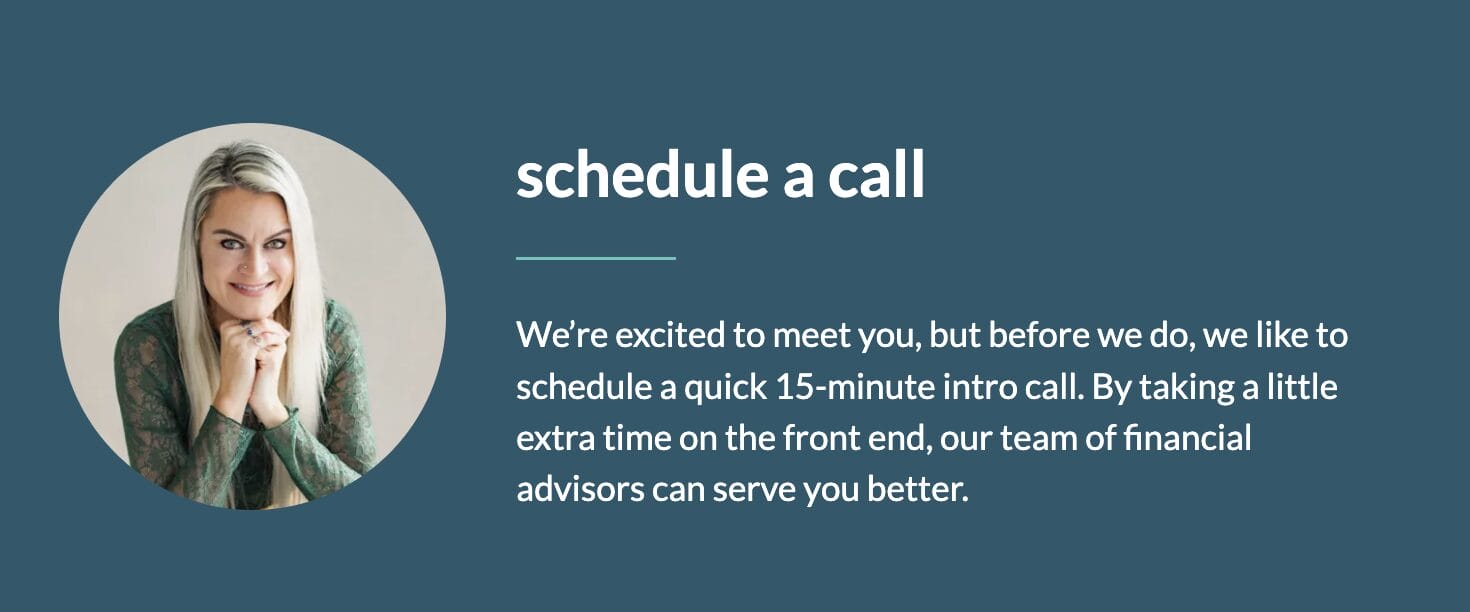
The Money PIG podcast is hosted by Reid Trego. Goodwin Investment Advisory is a Registered Investment Advisory firm regulated by the Securities and Exchange Commission in accordance and compliance with securities laws and regulations. Goodwin Investment Advisory does not render or offer to render personalized investment or tax advice through the Money PIG podcast. The information provided is for informational purposes only and does not constitute financial, tax, investment or legal advice.
For personalized financial guidance, schedule an schedule an intro call with our team at Goodwin Investment Advisory in Canton, GA . Our CFP® professionals can provide advice and help you navigate how to invest your wealth and plan for your retirement. We’d love to help you live out your legacy!
Goodwin Investment Advisory is a Registered Investment Advisory firm regulated by the Securities and Exchange Commission in accordance and compliance with securities laws and regulations. Goodwin Investment Advisory does not render or offer to render personalized investment or tax advice through the Money PIG podcast. The information provided is for informational purposes only and does not constitute financial, tax, investment or legal advice.

